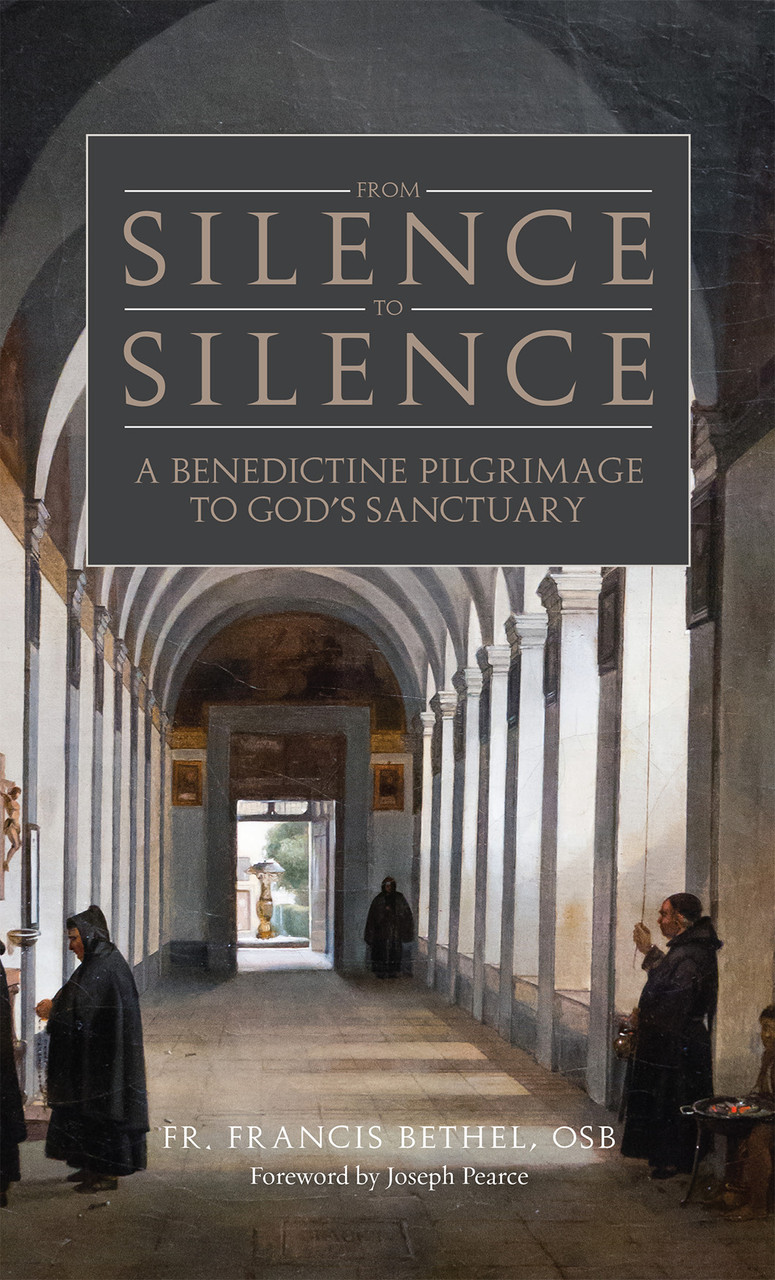Learn how to speak with virtue from the Benedictines and Aristotle! Read this excerpt to discover the 3 traits of good conversation.
We teach when we speak, but we also support others and seek communion with them. We can here consider three virtues for a good conversation brought out by Aristotle, that, in fact, for us Christians, are aspects of charity. Conversation should be truthful, friendly, and playful. These qualities will assist our silence.
Truthfulness
Aristotle contrasts truthfulness with boasting on one hand and with false humility, disparagement of self, on the other. To be in conversation with others, we must be ourselves. Our interlocutor needs to be in contact with a real person. Part of this is to speak in accord with our thoughts. We need to guard against subtle, half-conscious duplicity. We do not have the right to use words merely to win an argument rather than to look for truth. Nor may we talk to show off, to fool people into thinking we are knowledgeable or whatever. That is noise.
Truthfulness would also mean that we are attentive to our words, to their meanings and how to use them to convey the truth we want to get across. What we call the trivium consists in the arts needed for that: logic studies how to think, grammar considers the organization of a language, and rhetoric is the art of helping the other see the truth.
Friendliness
Friendliness is essential to conversation. We want the good of our interlocutor. We want communion with him in the true, the good, and the beautiful. We want to rise with him to God, but we know that all good and true paths lead there in such a way that we do not have to always take on the preacher’s mantle.
Aristotle opposes friendliness, on one hand, to the flatterer, to the fake friend who is, in fact, striving to get ahead in some way, and on the other hand, to the grouchy and contradicting type. Both the obsequious and the quarrelsome persons are, most of all, concerned with themselves. They are closed up in their own little worries and preoccupations, in interior noise. The friendly person, on the contrary, is silent enough to be sincerely attentive to the other person.
He has a receptive heart, is ready to listen. He is genial and affable, approachable, warmhearted, and supportive. Forgetting himself, he has a capacity to feel with the other, to share in the other’s joy or pain. He is tactful and courteous in considering his interlocutor. St. John Henry Newman wrote: “[The gentleman’s great concern is] to make every one at their ease and at home. He has his eyes on all his company; he is tender toward the bashful, gentle toward the distant, and merciful toward the absurd; he can recollect to whom he is speaking.”
We should not always be dragging those around us into our preferred subject but rather enter gladly into what pleases them. We will need patience in dealing with people, at times, putting up with a conversation that is not as agreeable to us. We must respect all men, remembering that they are made in the image of God, and be ready to learn from them. We have to know how to remain in the background when fitting, letting the other have his moment, as well as how to lead and animate the conversation when useful.
Playfulness
The third major disposition Aristotle mentions is playfulness. He contrasts the playful person with the stern, disapproving, intolerant type who does not show joy, who is burdensome to others, who hinders their enjoyment. St. Thomas tells us that “to sin by defect in game is to never joke, give a bad look to those who joke, and rebuke their moderate playfulness.” Aristotle and St. Thomas, however, also tell us to avoid the other extreme, that of the buffoon who aims at raising a laugh even if circumstances of place and time are not fitting, including through jokes that are discourteous or shameful.
It is easy to understand that one needs our words to be true as well as good to the other, and that this can be done without losing recollection. The note of playfulness might seem more difficult to integrate into a culture of silence. Yet, humor is very much a part of human conversation. Things, situations, and people are indeed often funny as they do not always measure up to what we think would be ideal, or their logic does not correspond to reality. Wit and drawing out paradoxes are thus sometimes ways of helping to see the truth. Humor can strike a facet of the truth in a way that a straightforward sentence could not. Playful conversation also relaxes people, keeps us attentive, and hits a hidden common note, stimulating sympathy between souls. Amiable and supple good humor is like salt, which brings out lighthearted spontaneity and individual riches.
“A sad saint is a sorry saint,” said St. Francis de Sales. With the habit of God’s presence, we can maintain a gaze on Our Lord and seek truth and good while being lighthearted with our neighbor. Saints were recollected but knew how to be agreeable. Some of them, such as Miguel Pro, Padre Pio, and Philip Neri, were pranksters. Charles de Foucauld, that austere hermit in the Sahara, said: “I laugh all the time with people. It lightens the atmosphere.” Thomas More was a master of enlivening, fun-loving conversation. Before his execution, he several times encouraged loved ones by saying that they all would “make merry” together in heaven someday. Once, someone I knew asked a Missionary of Charity how the sisters could be so gay with all the suffering around them. The sister replied: “Life is tough enough for these people without us adding to it.”
For a proper playfulness, permit me to quote one of my monastic brothers who died of cancer while still relatively young. Father François de Feydeau, of whom I will speak later, wrote in a letter about visitors at his deathbed: “I am happy to see my brothers joyful, and to help them be so, but I must learn to do that in such way that I do not harm their union with God but lead them to God without them noticing it.”
We have now envisioned a first step in our pilgrimage, basically, that of quieting down our interior life and fostering receptivity and attention. I said that, to come together harmoniously, our faculties need something higher to which they can be ordered. Adherence to high values is, in any case, the goal of the mortification of the sensibility, of the ordering of our spiritual faculties, and of the custody of our lips. Ultimately, silence in all our being can only be accomplished by ordering all things to God, our end, the end of all things.
Next, then, with Our Lady, we need to fill that interior stillness by pondering God’s mystery in our heart. That will be the object of the second phase of our journey. With a certain discipline over our lips, custody of our exterior senses, some control over machines and gadgets, with the passions and imagination calm and fairly well disposed, with a focused intelligence and will, we are ready to hone in on beautiful mysteries that lead toward God.
ooo
This article is taken from a chapter in From Silence to Silence by Fr. Francis Bethel, OSB which is available from TAN Books.









